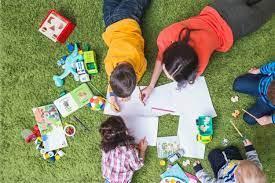Personal Development
Why is personal development so important?

"The time is always right to do what's right."
-Martin Luther King Jnr.
Educating for 'life in all its fullness', by providing opportunities to develop the mind, body and spirit is our core approach. We aspire to develop the whole child so they are well prepared for life in modern Britain and able to contribute positively to society.
Effective provision develops:
• Responsible, respectful and active citizens who are able to play their part and become actively involved in public life as adults
• Pupils’ understanding of the fundamental British values of democracy, individual liberty, the rule of law and mutual respect and tolerance
• Pupils’ character, a set of positive personal traits, dispositions and virtues that informs their motivation and guides their conduct so that they reflect wisely, learn eagerly, behave with integrity and cooperate consistently well with others
• Pupils’ confidence, resilience and knowledge so that they can keep themselves mentally healthy
• Pupils’ understanding of how to keep physically healthy, eat healthily and maintain an active lifestyle, including giving ample opportunities for pupils to be active during the school day and through extra-curricular activities
• Pupils’ age-appropriate understanding of healthy relationships through appropriate health and relationships education.
Effective provision promotes:
• Equality of opportunity so that all pupils can thrive together, understanding that difference is a positive, not a negative, and that individual characteristics make people unique
• An inclusive environment that meets the needs of all pupils, irrespective of age, disability, gender reassignment, race, religion or belief, sex or sexual orientation.
Effective provision enables/supports:
• Pupils to recognise online and offline risks to their well-being
• Pupils to recognise the dangers of inappropriate use of mobile technology and social media
• Readiness for the next phase of education so that pupils are equipped to make the transition successfully
Effective provision supports spiritual, moral, social and cultural (SMSC) development:
Spiritual development:
• Ability to be reflective about their own beliefs (religious or otherwise) and perspective on life
• Knowledge of, and respect for, different people’s faiths, feelings and values
• Sense of enjoyment and fascination in learning about themselves, others and the world around them
• Use of imagination and creativity in their learning
• Willingness to reflect on their experiences
Moral development:
• Ability to recognise the difference between right and wrong and to readily apply this understanding in their own lives
• Understanding of the consequences of their behaviour and actions
• Interest in investigating and appreciating the viewpoints of others
Social development:
• Use of a range of social skills in different contexts, for example working and socialising with other pupils, including those from different religious, ethnic and socio-economic backgrounds
• Acceptance of and engagement with the fundamental British values of democracy, the rule of law, individual liberty and mutual respect and tolerance of those with different faiths and beliefs. They will develop and demonstrate skills and attitudes that will allow them to participate fully in and contribute positively to life in modern Britain
Cultural development:
• Understanding and appreciation of the wide range of cultural influences that have shaped their own heritage and that of others
• Understanding and appreciation of the range of different cultures in the school and further afield as an essential element of their preparation for life in modern Britain
• Ability to recognise, and value, the things we share in common across cultural, religious, ethnic and socio-economic communities
• Willingness to participate in and respond positively to artistic, musical, sporting and cultural opportunities
• Interest in exploring, improving understanding of and showing respect for different faiths and cultural diversity and the extent to which they understand, accept, respect and celebrate diversity
